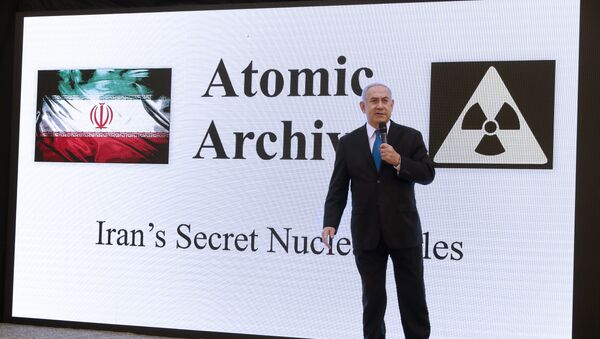Sputnik: What are your expectations for this trip by Benjamin Netanyahu? What do you think he was planning to achieve and do you think he will be successful in doing so?
Dr. Yossi Mekelberg: I think the question is what Netanyahu wants to achieve. After the decision by the United States to withdraw from the nuclear deal with Iran, he tries to work on another P5+1, in this case in Europe. Now, the problem is that they are conflating two different issues. One is whether Iran adheres to the agreement, and so far the view of the IAEA is that Iran does adhere. And the bigger issues is that of Iran's behavior in the region; Iran's development of ballistic missiles; Iran's role in Syria; Iran's role in Lebanon and in Palestine, which are different issues altogether If you look in the long term how to contain Iran in this sense.
Sputnik: I see. It seems that many would say that his meeting with Angela Merkel was not very successful in this matter, as far as trying to convince her to get onboard with his vision of what kind of nuclear treaty there should be with Iran. Of course, Germany is going to stand firm behind the deal, because they feel that it's the best option that's currently available.
Dr. Yossi Mekelberg: Yes. And there is division in this sense, in differences of opinion between the United States and Israel and some of the Gulf States, mainly Saudi Arabia, on the one side, and Europe; whether they should adhere to the agreement or not. They have issues with the agreement and they think that the agreement should be worked out, because one of the problems is actually not the criticism that comes from the United States and Netanyahu's camps. It was not transformative enough.
READ MORE: Tehran Informs IAEA About Boosting Uranium Enrichment — Atomic Organization
It was based on transaction. If it is transactional by nature, which in other words is "this is what Iran is allowed to do in terms of enrichment of the uranium, and in return the sanctions will be lifted," the only criterion is whether Iran is standing or adhering by the agreement. And so far, there is no evidence to the contrary. If they want to move to a different agreement, in which you deal with a range of issues with Iran, it should be negotiated separately.
Sputnik: I believe there are lots of European allies who want to adhere with the deal. Perhaps yes, there can be additional conversation, but why destroy the deal that was effective in keeping Iran from proliferating its nuclear weapons?
Dr. Yossi Mekelberg: Right now, the country that violates the agreement is the United States, not Iran. It doesn't exonerate Iran from its behavior, for instance in Syria; or the way that it arms Hezbollah; or the kind of language that came from Khamenei yesterday, calling Israel a cancer in the Middle East. But those are different issues. […] The rhetoric on both sides is bad.
The views and opinions expressed in this article do not necessarily reflect those of Sputnik.



